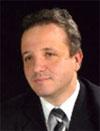References
- Babintsev V. P. Corporatization and bureaucratization of the university: causes and subcultural consequences. In: Noosfernye issledovaniya. 2020. Vol. 3. P. 14–22. (In Russ.)
- Bermus A. G., Bondarevskaya E. V., Brikunova S. S., Kartavtseva O. D. [et al.]. Humanitarian methodology of research of modernization processes in pedagogical education. Rostov-on-Don, 2013. 436 p. (In Russ.)
- Baudrillard J. Simulacra and simulations. Moscow, 2015. 240 p.
- The future of higher education in Russia: an expert view. Foresight Study 2030: Analytical Report / ed. V. S. Efimov. Krasnoyarsk, 2012. 182 p. (In Russ.)
- Zakirova T. V. Simulacrum phenomenon as a manifestation of social imitation. In: Vestnik OGU. 2014. № 7 (168). P. 50–53. (In Russ.)
- Ignatova N. V., Nikitin A. P. Education as a consumer. In: Idei i idealy. 2014. № 1. Vol. 2. P. 81–88. (In Russ.)
- Kashina M. A. Negative consequences of reforming Russian postgraduate studies: analysis and ways of minimization. In: Vyshee obrazovanie v Russii. 2020. № 8-9. P. 55–70. (In Russ.)
- Makarova M. N. Academic ethics abroad and in Russia: how to prevent student violations in universities? Izhevsk, 2021. 256 p. (In Russ.)
- Napso M. D. McDonaldization of education: the limits of calculability. In: Narodnoe obrazovanie. 2019. № 6 (1477). P. 49–53. (In Russ.)
- Ritzer J. McDonaldization of society 5. Moscow, 2011. 592 p. (In Russ.)
- Terentiev E. A., Kuzminov Ya. I., Frumin I. D. Science without youth? The crisis of postgraduate studies and the possibility of overcoming it. National Research University Higher School of Economics, Institute of Education. Moscow, 2021. 48 p. (In Russ.)
- Fishman L. G. Commodification as a factor of moral and political progress. In: Politiya. Analiz. Khronika. Prognoz. 2019. № 2 (93). P. 6–27. (In Russ.)
- Heidegger M. Being and time. Moscow, 2015. 460 p. (In Russ.)
- Denisova-Schmidt E. Corruption, the Lack of Academic Integrity and Other Ethical Issues in Higher Education: What Can Be Done Within the Bologna Process? In: A. Curaj, L. Deca, R. Pricopie (eds). European Higher Education Area: The Impact of Past and Future Policies. Switzerland, 2018. P. 61–76.
- Freiburger T. L., Romain D. M. [et al.]. Cheating Behaviors among Undergraduate College Students: Results from a Factorial Survey. In: Journal of Criminal Justice Education. 2017. Vol. 28. № 2. P. 222–247.
- Ma Y., McCabe D. L., Liu R. Students’ Academic Cheating in Chinese Universities: Prevalence, Influencing Factors, and Proposed Action. In: Journal of Academic Ethics. 2013. Vol. 11. № 3. P. 169–184.
- Abramova P. A., Zborovskii G. E. Imitation in higher education as a social problem [Electronic resource]. In: Vysshee obrazovanie v Rossii. 2021. T. 30. № 5. P. 88–106. Electron dan. DOI: 10.31992/0869-3617-2021-30-5-88-106 (date of access: 12.10.2022). (In Russ.)
- Vanhemping E. G. «Fricative-Fake Cluster» of Auxiliary Academic Services as a Phenomenon of Destruction of University Practices: Origins of the Problem and Solutions [Electronic resource]. In: Nepreryvnoe obrazovanie: XXI vek [Lifelong education: the 21st century]. 2022. Vol. 1 (37). Electron dan. DOI: 10.15393/j5.art.2022.7424 (date of access: 12.10.2022). (In Russ.)
- Vanhemping E. G. «Academic writing» as an academic discipline in the global university space: a comparative analysis of didactic and methodological approaches [Electronic resource]. In: Nepreryvnoe obrazovanie: XXI vek [Lifelong education: the 21st century]. 2022. Vol. 1 (37). P. 5–21. Electron dan. DOI: 10.15393/j5.art.2022.7424 (date of access: 12.10.2022). (In Russ.)
- Dremova O. V. The policy of Russian universities in relation to academic fraud of students: punishment or education? In: Universitetskoe upravlenie: practika i analyz. 2020. Vol. 24. № 4. P. 30–45. Electron dan. DOI: 10.15826/umpa.2020.04.033 (date of access: 12.10.2022).
- Feldstein D. I. Problems of the quality of psychological and pedagogical dissertations research, their compliance with modern scientific knowledge and needs of society [Electronic resource]. Electron dan. URL: https://si-sv.com/Biblioteka/feldshtejn_doklad_20-04-2011.pdf (date of access: 12.10.2022). (In Russ.)
- Sheipak S. A. Ghostwriting: Simulacra of Academic Efficiency. In: Vysshee obrazovanie v Rossii. 2022. T. 31. № 4. P. 102–112. Electron dan. DOI: https://doi.org/10.31992/0869-3617-2022-31-4-100-112(date of access:12.10.2022). (In Russ.)
- Bretag T., Harper R., Burton M. [et al.]. Contract cheating: A survey of Australian university students [Electronic resource]. Studies in Higher Education. 2019. Vol. 44. P. 1837–1856. Electron dan. DOI: 10.1080/03075079.2018.1462788 (date of access: 12.10.2022).
- Goldstein J. How common is ghostwriting in top US universities? [Electronic resource]. Electron dan. URL: https://www.quora.com/How-common-is-ghostwriting-in-top-US-universities (date of access: 12.10.2022).
- Holi Ibrahim Holi Ali, AwadAlhassan. Fighting contract cheating and ghostwriting in Higher Education: Moving towards a multidimensional approach. In: Cogent Education. 2021. Iss. 8:1. P. 1–18. Electron dan. DOI: 10.1080/2331186X.2021.1885837 (date of access: 12.10.2022).
- Nayak V., Hegde K. P. Students’ Perception and Experience of Ghost Writing – Studywith Reference to Mangalore City [Electronic resource]. In: Indonesian Journal of Educational Research and Review. 2022. Vol. 5. № 1-2. P. 34–42. Electron dan. DOI: https://doi.org/10.23887/ijerr.v5i1.44145 (date of access: 12.10.2022).
- Newton P. How common is commercial contract cheating in higher education and is it increasing? A systematic review [Electronic resource]. In: Frontiers in Education. 2018. Vol. 3. Electron dan. DOI: 10.3389/feduc.2018.00067 (date of access: 12.10.2022).
- Stavisky L. P. Term Paper «Mills», Academic Plagiarism, and State Regulation. In: Political Science Quarterly.1973. Vol. 88 (3). P. 445–461. Electron dan. DOI: 10.2307/2148993 (date of access: 12.10.2022).












